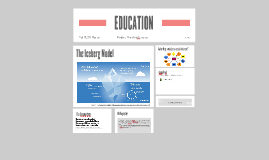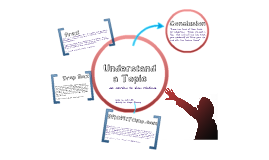Free Education for All
Transcript: Free Education for All A Case for Debt-Free Higher Education Importance of Education Economic Benefits of Education Higher levels of education are associated with increased earning potential and greater economic stability. Individuals with higher education levels are more likely to secure well-paying jobs and contribute positively to the economy. Education plays a crucial role in shaping individuals' knowledge, skills, and perspectives. It empowers people to achieve their full potential and contributes to the advancement of society as a whole. The Power of Education Education is the key to personal growth, societal progress, and economic development. Educational Empowerment Global Impact Promotion of Equality Free education promotes equality by eradicating the economic barriers that limit access to higher education based on financial means. Countries with free education systems demonstrate higher academic performances and greater social mobility among their citizens. Education empowers individuals to make informed decisions, critically analyze information, and participate actively in societal issues. It provides a foundation for personal and professional growth, leading to a more empowered and engaged population. Economic Advantages Educational Accessibility Importance of Equal Opportunities Enhanced Workforce Free education opens doors to academic advancement for individuals from all walks of life, ensuring a more educated society. Free education ensures that every individual, regardless of their financial background, can pursue higher studies without constraints. Debt-free education leads to a more educated workforce, driving innovation, economic growth, and societal progress. Free education leads to a higher level of education in society, boosting economic growth and productivity through a skilled workforce. Benefits of Free Education Financial Strain Reduction Debt-free education alleviates the financial stress on students, allowing them to focus on their studies and personal development. Conclusion: Advocating for Free Education Providing free or debt-free higher education is crucial for equitable access and reducing financial burdens on students. In a society where education is free, access to higher education becomes a fundamental right for all individuals, regardless of their financial background. Access to Higher Education Impact on Students Student Loan Debt Free education eliminates financial barriers, allowing individuals to pursue higher education based on merit and passion rather than financial constraints. Germany's Tuition-Free System The financial challenges of higher education have a profound impact on students, causing stress and limiting their opportunities for personal and professional growth. Student loans contribute to the growing debt crisis among students, affecting their financial well-being long after graduation. Germany offers tuition-free education at its public universities, ensuring access and affordability for all students. This approach has led to a high standard of education and a skilled workforce. Norway's Government-funded Education In Norway, higher education is funded by the government, allowing students to attend university for free. This model emphasizes equality and provides opportunities for all individuals to pursue academic success. Examples of Countries with Free Education Countries like Germany and Norway offer free education, serving as successful models for debt-free higher education systems globally. Investing in Talent Development Rising Tuition Fees Debt-free education serves as an investment in talent development, nurturing the skills and abilities of diverse student populations. By removing financial barriers, educational institutions can cultivate a rich pool of talent that contributes to societal progress and innovation. The Cost of Higher Education Supporting Academic Excellence Equality in Education Enhancing Career Opportunities Debt-free education can support academic excellence by allowing students to focus on their studies without the stress of looming debt. This enables individuals to perform to the best of their abilities and achieve their full academic potential. Debt-free education levels the playing field and provides equal access to higher education for students regardless of their financial background. This fosters diversity, inclusivity, and fairness within academic institutions, creating a more merit-based system. Debt-free education enhances career opportunities for graduates by allowing them to pursue their desired career paths without the burden of student debt. This flexibility enables individuals to take on roles that align with their aspirations and skills, ultimately benefiting the workforce and economy. Tuition fees continue to increase, placing a financial burden on students and limiting affordability for higher education. Empowering Underprivileged Students Closing the Opportunity Gap Arguments for Debt-Free Education Debt-free

















